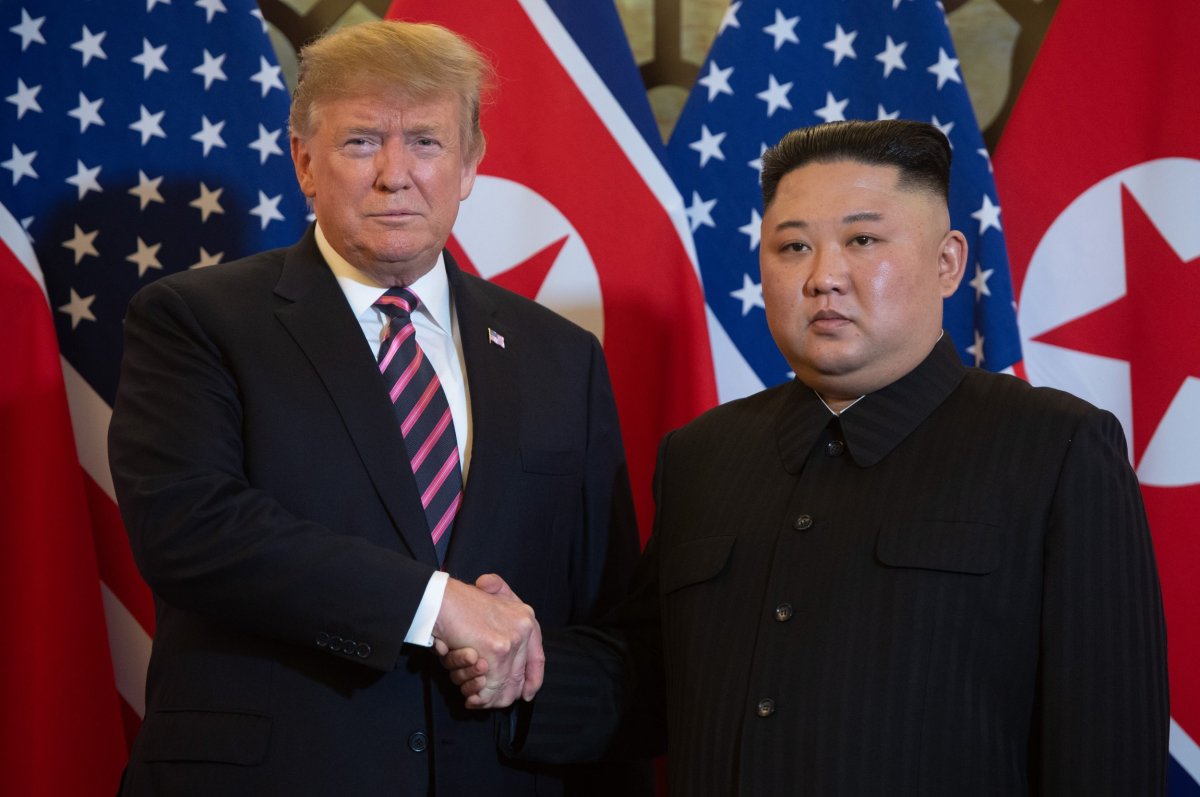The U.S.-North Korea Hanoi summit ended with no agreement. Now the beautiful words of peace and denuclearization of the Korean Peninsula, the goal agreed upon in Singapore last June, are ringing hollow.
It was encouraging that President Donald Trump at least showed interest in continuing dialogue. But now the serious reality is that no real restraint on the nuclear weapons activities of North Korea is yet in place. The dangerous nuclear game can continue. And as long as nuclear weapons exist, there can be no real peace.
The situation between India and Pakistan today makes the dangerous illusion of nuclear deterrence clear. When the two rivals declared themselves nuclear powers some twenty years ago, many said they would keep each other in check, in parity under the concept of deterrence. But today's tensions show the real danger of escalation into nuclear war between the two. Even a single miscalculation can lead to a nuclear war. And the consequences would be catastrophic and global.
The survivors of Hiroshima and Nagasaki are speaking, even today, of their unbearable suffering that has continued for over seven decades. The immediate terror of the bombs turned into long-term suffering as radiation caused multiple types of cancers, even decades later. Those who abandoned family members had to go through their lives in trauma. They say they have experienced the "hell." We must ensure that hell never visits humanity again.

The failure of the Hanoi summit made clear the limitations of bilateral talks, especially those between two leaders known to be temperamental. An international, multilateral process is urgently needed. It was President Moon Jae-in of South Korea who made the U.S.-North Korea process happen, for the sake of the peace of the two Koreas.
The host countries Singapore and Vietnam, as nuclear-weapon-free states, contributed greatly by providing neutral places to talk. Now regional stakeholders, including China and other members of the halted six-party talks, as well as the United Nations, should play a more active role to prevent further setbacks and move the disarmament agenda forward.
Denuclearization of the Korean Peninsula, including North and South, remains viable. On the side of the North, there must be comprehensive, time-bound, verified and irreversible dismantlement of all nuclear weapons and their programs. To date, no plan has been made. No time frame has been set. And no verification has been agreed.
The first step would be for North Korea to join the Comprehensive Nuclear Test-Ban Treaty, thus allowing international verification of test sites. This would be the entry point for multilateral engagement to North Korea's disarmament process.
South Korea has a vital and often forgotten role to play in denuclearizing the Korean Peninsula. The country continues to officially rely on the so-called "nuclear umbrella" policy, in which South Korea takes part in the U.S. nuclear war game and declares the U.S. could launch a nuclear attack on the nation's behalf. The same applies to Japan. It is also essential to remove these threats, through pursuing nuclear disarmament on the side of the U.S. and its allies.
There is a solution. The Treaty on the Prohibition of Nuclear Weapons, which was adopted in 2017 by a great majority of U.N. members, provides a pathway to genuine nuclear disarmament. Both North and South Korea should join the treaty now.
By doing so, North Korea would be obliged to declare all nuclear weapons and their programs and put them up for dismantlement under international verification. South Korea would be obliged to part with any assistance to U.S. nuclear weapons. If the U.S. is serious about nuclear disarmament, it must stop pressuring other nations to reject the nuclear prohibition treaty and fulfil in good faith its own disarmament obligation.
South Africa once developed nuclear bombs under the Apartheid government. The nation was an isolated state under international sanctions. They realized nuclear weapons were part of a weak and inhumane regime. The country abandoned them all as they shifted to a modern democracy and accepted international verification. It has now become a disarmament champion, this week ratifying the nuclear prohibition treaty. South Africa shows that denuclearization is possible.
Multilateral nuclear disarmament means that nuclear-weapon-free states, a great majority of the world, have an essential role to play, by setting norms and cornering the handful of states that possess or endorse nuclear weapons into changing their course.
Civil society also has a stake in the process. Remember that nuclear weapons can be detonated anytime, even today, either by design or by accident. And should that happen, it would be us, the people, who would bear the suffering.
The Trump-Kim Reality TV show is over. Now is the time for everyone to join the endeavour of making these weapons of terror history.
Akira Kawasaki is a member of the Steering Group of the International Campaign to Abolish Nuclear Weapons, winner of the 2017 Nobel Peace Prize, and the Executive Committee of Peace Boat. He represented ICAN at the Singapore Summit and Hanoi Summit.
Uncommon Knowledge
Newsweek is committed to challenging conventional wisdom and finding connections in the search for common ground.
Newsweek is committed to challenging conventional wisdom and finding connections in the search for common ground.
About the writer
To read how Newsweek uses AI as a newsroom tool, Click here.








